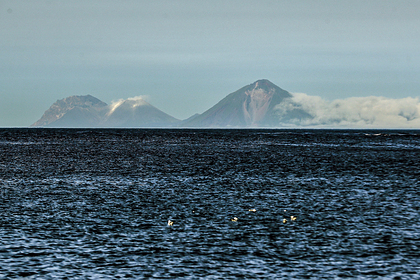
Japanese political scientist and former diplomat Akio Kawatao pointed to the need to demonstrate readiness and ability to block the straits between the southern Kuril Islands and mainland Russia to resolve the “territorial issue”. He wrote about this in his article for the Newsweek Japan portal.
We are talking about the La Perouse Strait and the Sangar Strait – the “main supply routes” between mainland Russia and the four “northern islands”. However, the political scientist believes, Tokyo should not rush to resolve the Kuril issue, but wait until the “national power” of Russia “decreases, as in the 1990s.” At the same time, he admits that this will not happen in the foreseeable future, so Japan needs to “get together” and tune in to a “long process.”
Nevertheless, Kawatao believes that Tokyo must now begin to prove to the world community that “the Yalta agreement in itself does not determine the change in the borders between Russia and Japan,” while observing “calmness and composure.” The political scientist also spoke about the need to build relations with Moscow that would be beneficial for Tokyo in terms of “solving the territorial issue.”
In mid-February, the General Secretary of the Japanese Cabinet of Ministers Katsunobu Kato said that Tokyo wants to achieve a final solution to the issue of the Kuril Islands belonging to Russia. The Russian Foreign Ministry reacted to Kato's statement and stressed that the topic of Russia's possible transfer of the Kuril Islands to Japan cannot be discussed in the context of the conclusion of a peace treaty.
As a result of the Second World War, a peace treaty was not concluded between Moscow and Tokyo. The main obstacle to its signing was the unresolved territorial dispute over the southern part of the Kuriles – the Iturup, Kunashir, Shikotan islands and the Habomai group of islands. The Japanese side calls the South Kuriles northern territories and does not recognize Russian sovereignty over them. Moscow, in turn, does not recognize the very fact of the territorial dispute. Washington, like Tokyo, considers the South Kurils to be part of Japan.

